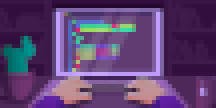Education is complicated. And some of the toughest issues educators face don’t fit neatly into a short article. Sometimes the best insights come by hearing education leaders work through their thoughts or struggle to explain their challenges.
That’s why each week we bring you a new interview or audio story on the EdSurge Podcast. Our guests this year included educators and students of many types, including an astronaut, a professional poker player, a wingsuit flying champion and a scholar advising a hit TV comedy. There were plenty of surprising moments—like when a high school hacker admitted that if he had been principal of his school, he would have suspended him too. And love stories, such as what drove one high-school drop-out to become a teacher.
If you’re a podcast listener, please add the EdSurge Podcast to your feed. You can find us on Apple Podcasts, Overcast, Spotify, Stitcher, Google Play Music or wherever you listen.
As the year fades out, we’re doing our annual look back at the episodes that resonated most with listeners. Here's the count-down of the most-listened-to episodes of the year.
12. Meet Anthony Johnson: Teacher of the Year. Rebel ‘Mayor.’ High School Dropout.

The title of Anthony Johnson’s book explains why he’s an unlikely educator: it’s called “High School Dropout to Teacher of the Year.” Johnson’s story is about second chances and falling in love, the surprising parallels between his work as a correctional officer and his work as an educator and what it means to reinvent the system that failed him.
11. How to Move From Digital Substitution to ‘Deeper Learning’

Replacing VHS tapes with YouTube clips is probably not the ideal version of moving a classroom into the 21st century. So how do teachers actually create meaningful work and allow students real agency in a 21st century classroom? We asked Scott McLeod, associate professor of education leadership at the University of Colorado in Denver and the author of “Harnessing Technology for Deeper Learning,” to share his thoughts.
10. Is Teaching an Art or a Science? New Book Takes a Fresh Look at ‘How Humans Learn.’

Can science unlock secrets of the learning process that can help teachers and professors be more effective in their classrooms? We talked about that and more with Josh Eyler, director of the Center for Teaching Excellence at Rice University and author of the book “How Humans Learn.”
9. The Challenge of Teaching News Literacy

What are the stakes of making sure the next generation can sort fact from propaganda or spin? Teachers face the challenge of teaching students to navigate the relentless flow of information they comb through social media and websites and YouTube and ... podcasts. Our guest, Peter Adams, has years of experience working with students, first as a classroom teacher, then as a college instructor, and currently as senior vice president for education at the News Literacy Project.
8. The Internet Can Be a Force for Good. Here’s How.

Along with teaching news literacy, many educators feel a mission to impart lessons on how to be a good citizen. EdSurge sat down with one of the foremost experts on this topic: Marialice Curran, founder and executive director of the Digital Citizenship Institute. She argues that digital citizenship is less about a list of online dos and don’ts and more about promoting social responsibility and human connection.
7. A Bored Student Hacked His School’s Systems. Will the Edtech Industry Pay Attention?

In September, we talked about cybersecurity at schools, and how secure—or in some cases how vulnerable—the tech systems systems really are. At the center of our story: Bill Demirkapi, who managed to bust into two key student information systems at his high school, and then tried to get the edtech companies to fix their software—with mixed results.
6. Why Students Can’t Write — And Why Tech Is Part of the Problem

Writing is more important than ever, but today’s students are lousy at it. And John Warner, an author, book columnist for the Chicago Tribune and longtime writing instructor, has some ideas about why that is, and how to fix it. EdSurge talked with Warner about his sometimes surprising ideas about the crisis in writing instruction, including why he thinks FitBits are part of the problem.
5. A ’Golden Age’ of Teaching and Learning at Colleges?

Researchers are making new discoveries these days about how people learn, and some of those findings are making their way onto campus, in the form of new teaching practices. That has Matthew Rascoff, associate vice provost for digital education and innovation at Duke University, excited about the possibility to make wide-scale improvements in how colleges teach.
4. Many Frustrated Teachers Say It’s Not Burnout — It’s Demoralization

A few years ago, after more than two decades in the classroom, Chrissy Romano-Arribito began to experience something that may sound familiar to a lot of teachers: burnout. Or not burnout, exactly, but demoralization. Experts like Bowdoin College education chair Doris Santoro, author of the book “Demoralized,” note that as systemic pressure, such as top-down initiatives or punitive evaluation systems, crowd out teacher autonomy, many feel they can no longer tap into what “makes their work morally good.”
3. How to Bring ‘Mastery Learning’ to the Classroom

One of the most popular topics these days in education is mastery learning—the idea that the pace of a class should match what each student is ready to learn, as a way to ensure they’re really grasping material. But it can be hard to show educators what mastery learning looks like in practice. Cara Johnson has extensive experience both teaching and helping others using the approach. She talked with EdSurge about how she reaches parents and skeptical students—and shares her best tips for a successful mastery classroom.
2. Satirical Takes on Higher Ed and Why They Matter

What is your favorite satirical take on higher education? Maybe Jane Smiley’s "Moo." Or Don DeLillo’s "White Noise"? Or it could be Rodney Dangerfield’s "Back to School." Let’s face it, there almost endless works of fiction poking fun at academic life. In this episode, we celebrate this rich tradition of parody of academic life, and look at what these works say about the big challenges facing higher education today.
1. Why Social-Emotional Learning Is Suddenly in the Spotlight

In the last few years, terms like “whole child” and “social-emotional learning” have become buzzwords. But behind the buzzwords are programs, often led and managed by schools, that take into account all the different things a child needs to be able to learn and grow, even if those things reach outside the traditional roles of a school. EdSurge sat down with Christina Cipriano, the director of research at the Yale Center for Emotional Intelligence and a research scientist at the Child Study Center at the Yale School of Medicine.


